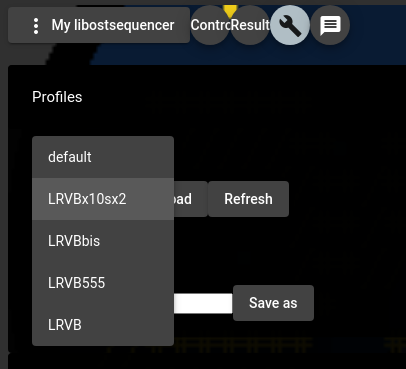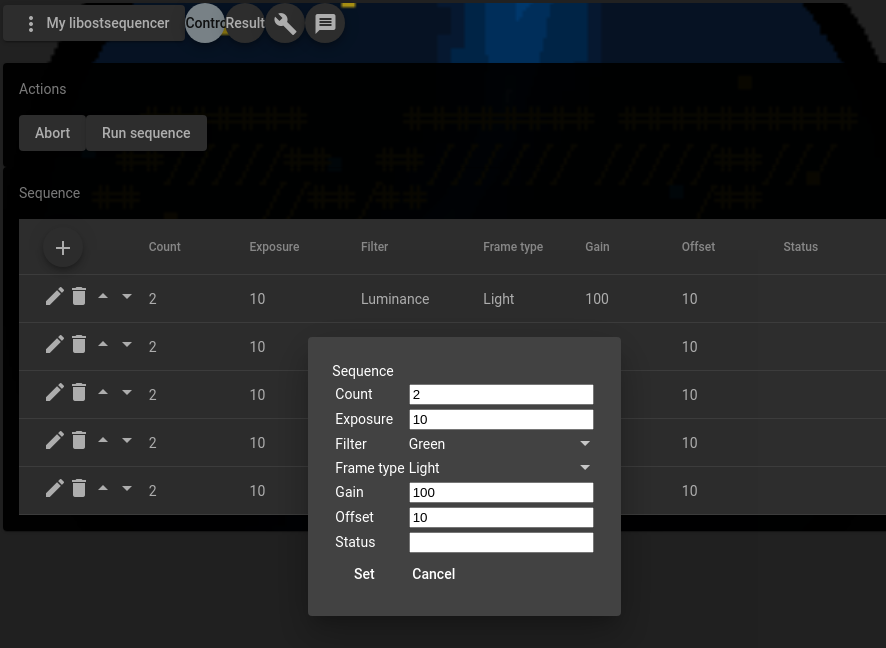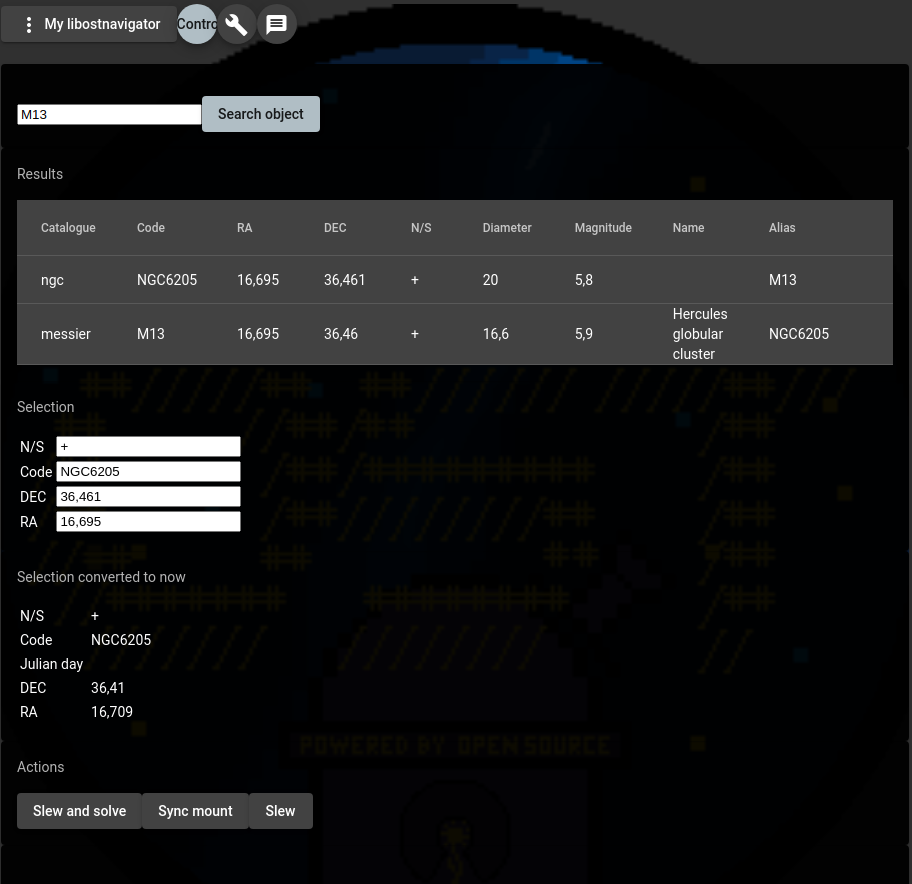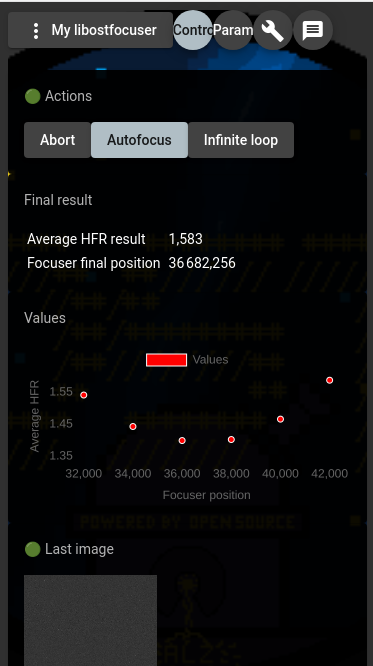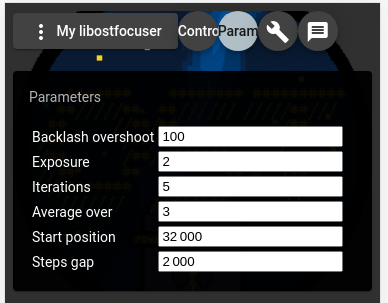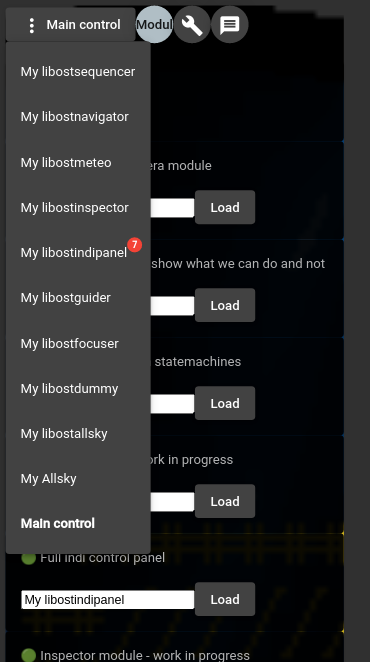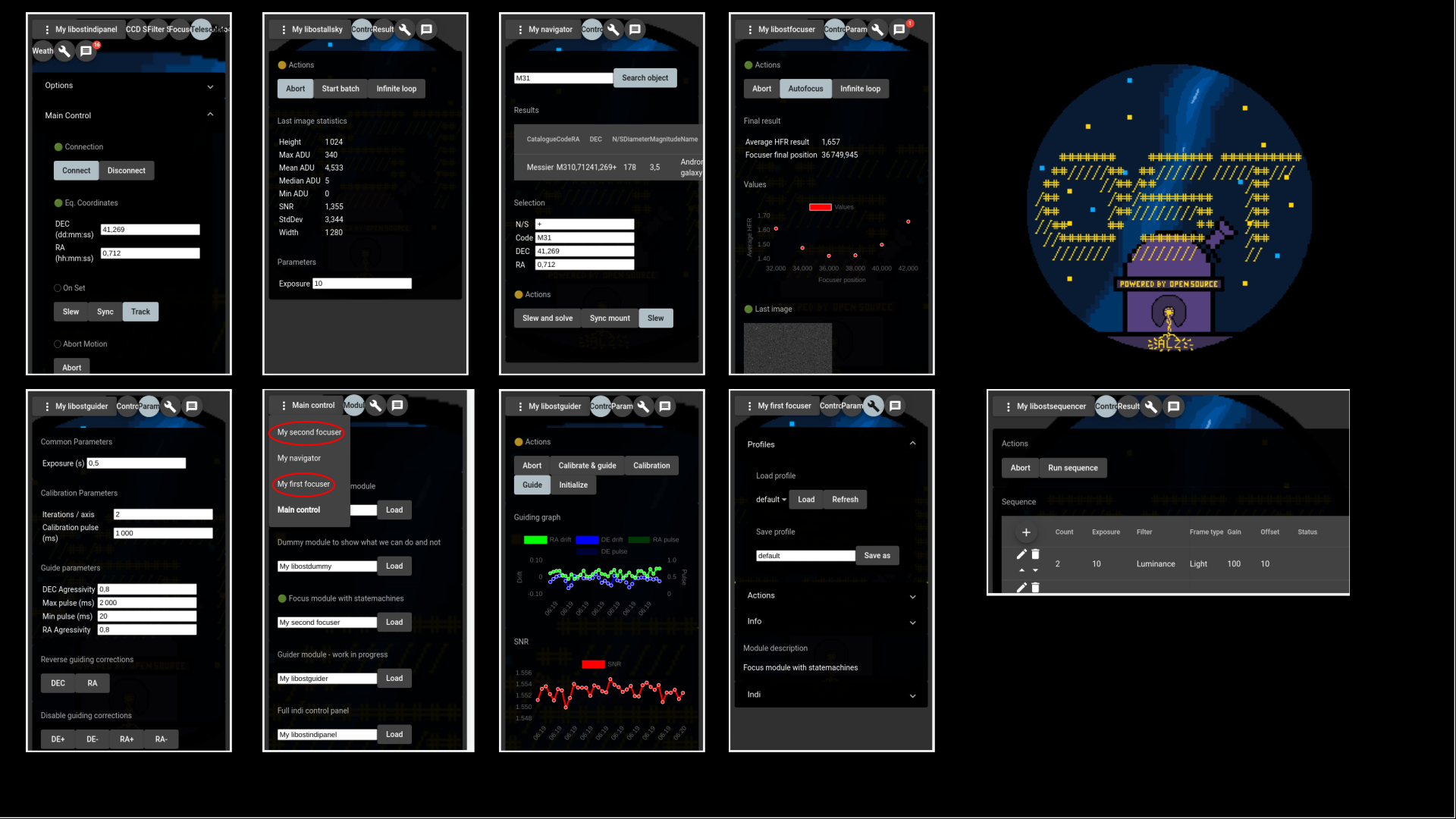
Bill for your information, a little followup on my favourite french forum
www.webastro.net/forums/topic/194650-cou...e/6/#comment-2961996
thank you for your persistence
G.
Read More...
A basic catalog manager, with slew commands
Read More...
Autoguide module, really hard to test with simulators
i need to manually reverse RA correction when pointing east, need to debug
Read More...
Main control allows to load different modules
you can give them a name (focuser 1 // focuser 2 ![]() )
)
and you can save your configuration
Read More...
Good evening ladies, good evening gentlemen.
I hesitated for a long time to open this thread, because it's way too early.
But time passes, and I have come to the point where my enthusiasm exceeds my reasonableness.
So "Observatoire Sans Tête" is a word-for-word translation of "Headless Observatory", from a joke between friends:
I don't hide it at all, I draw a lot of inspiration from lots of existing projects, trying to bring my point of view to them.
- AstrophotoPlus github.com/GuLinux/AstroPhoto-Plus which was discontinued last year
- Modindi of course github.com/pludov/mobindi
- Indigo (of course, too)
My second objective is to push the modular side as much as possible:
What I call "modules" can be instantiated as many times as desired.
The idea is to be able to control several setups at the same time. I know it's very rare, but who can do more can do less.
I'm new to C++, so I rely heavily on examples found here and there, or advice given by buddies.
My choices are probably debatable, but it allows me to arrive at a model that really starts to look like a good thing : "this is how i want to play"
So the backend is written in c++ with Qt, and the frontend with Angular
(idem: I discovered this framework with this project, I knew absolutely nothing about it before)
The two speak to each other with websockets, according to a grammar that draws much inspiration from Indi properties.
There would be a lot to say, I will try to feed this thread as I go.
For the moment, I'm happy to play with the indi simulators, but I now have enough to test a real astrophotography session:
- Find items
- Auto-focus
- Autoguiding
- Sequencer
I obviously use the Stellasolver library, and the basic indi client.
I tried to code my autoguider myself, I'm in a hurry to see what it can give under real stars.
Most of the mods are pretty basic, I'm mostly focusing on the core for now.
But once the core is strong enough, I can polish the modules.
If you want to give it a try :
launchpad.net/~gehelem/+archive/ubuntu/ostserver
and pick ostserver & ostmodules
The only real test i've managed to achieve IRL is my allsky module.
i must say it's running really well on my RPi3b+
But please be carefull, all this still needs a lot of tests, and you might break expensive stuff with if ... try it on a VM first ...
(A few more screenshots to come on next post)
Gilles
Read More...
No personal information is shared.
© 2003-2022 by INDI Library. All rights reserved.



